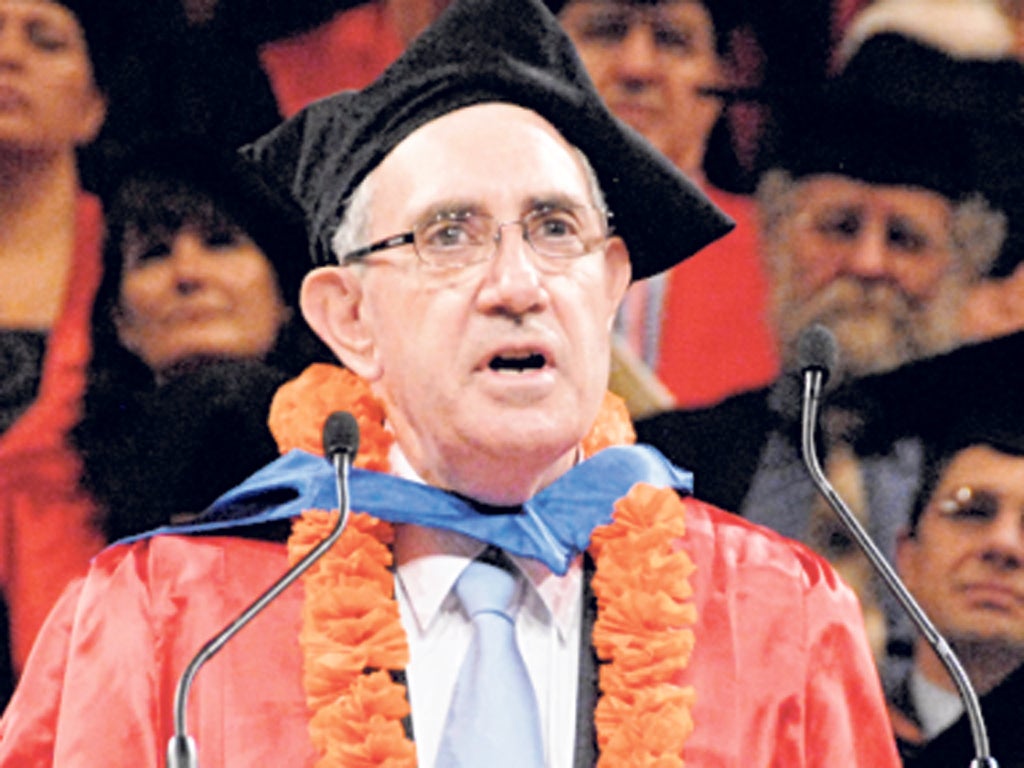
Your support helps us to tell the story
From reproductive rights to climate change to Big Tech, The Independent is on the ground when the story is developing. Whether it's investigating the financials of Elon Musk's pro-Trump PAC or producing our latest documentary, 'The A Word', which shines a light on the American women fighting for reproductive rights, we know how important it is to parse out the facts from the messaging.
At such a critical moment in US history, we need reporters on the ground. Your donation allows us to keep sending journalists to speak to both sides of the story.
The Independent is trusted by Americans across the entire political spectrum. And unlike many other quality news outlets, we choose not to lock Americans out of our reporting and analysis with paywalls. We believe quality journalism should be available to everyone, paid for by those who can afford it.
Your support makes all the difference.Professor Sir Paul Callaghan, who died on 24 March at the age of 64 after a long battle with cancer of the colon, was a leading New Zealand scientist who gained international recognition for his work in molecular physics.
"New Zealand has suffered a tremendous loss," Sir Peter Gluckman, chief science adviser to the country's Prime Minister John Key, said. "Paul has been our most distinguished public scientist and in the world of molecular physics has been a giant."
Callaghan, who was diagnosed with cancer in 2008, was best known for his work with magnetic resonance, which has practical applications in many fields, from health care to industrial production. He was also known for his work on nanoscience, which involves studying properties of substances at the scale of the individual atom. He won numerous honours, and was elected a Fellow to the Royal Society of London. In 2009, he was knighted and in 2011 was named New Zealander of the Year.
An outspoken public intellectual, Callaghan argued in favour of commercialising science. In 2004, he founded Magritek, a Wellington-based company that used magnetic resonance imaging and nuclear magnetic resonance for industrial and research applications.
Callaghan made science accessible, explaining it in a straightforward and entertaining way, using radio, books and public lectures to promote his view that New Zealand could use science to become a wealthier and better place. The Deputy Prime Minister Bill English said Callaghan earned the respect of everyone, even those who disagreed with him: "His knowledge and willingness to teach others was an inspiration to not only the science community, but New Zealand as a whole. He brought a unique combination of brilliance, integrity and courage to public debate."
Callaghan began his studies at Wellington's Victoria University, where he completed a degree in physics before continuing at Oxford, where he earned a DPhil working in low temperature physics. Returning to New Zealand in 1974, he took up a lecturing position at Massey University, where he began researching the applications of magnetic resonance to the study of soft matter. He was made Professor of Physics in 1984, and Alan MacDiarmid Professor of Physical Sciences in 2001. The following year, as founding director, he helped establish the MacDiarmid Institute for Advanced Materials and Nanotechnology.
In 2007 one of his radio series appeared in book form, As Far as We Know: Conversations about Science, Life and the Universe. A 2009 book, Wool to Weta: Transforming New Zealand's Culture and Economy, deals with the potential for science and technology entrepreneurialism to diversify New Zealand's economy. He also presented the documentary Beyond the Farm and the Themepark, which deals with the same issues.
Join our commenting forum
Join thought-provoking conversations, follow other Independent readers and see their replies
Comments